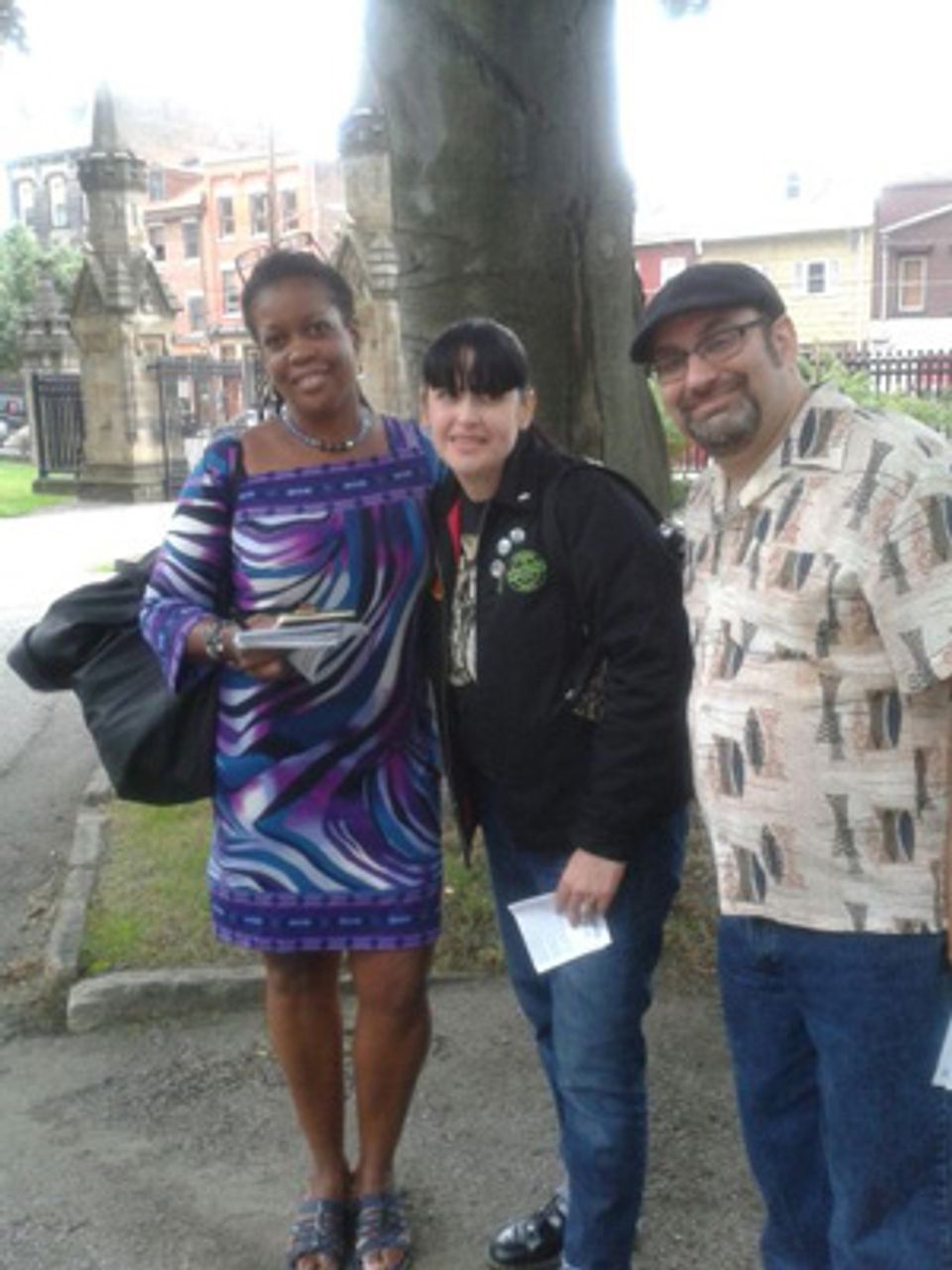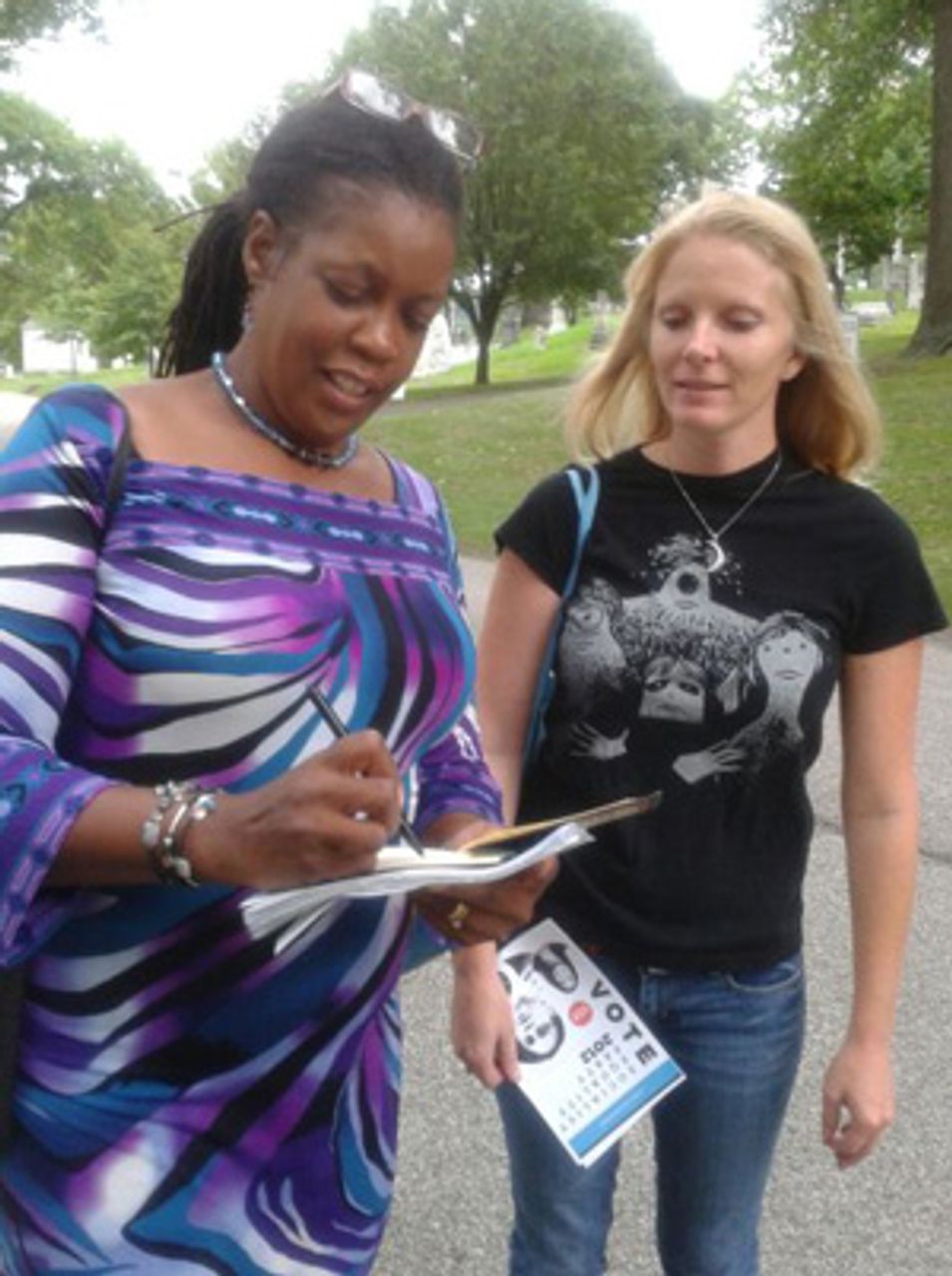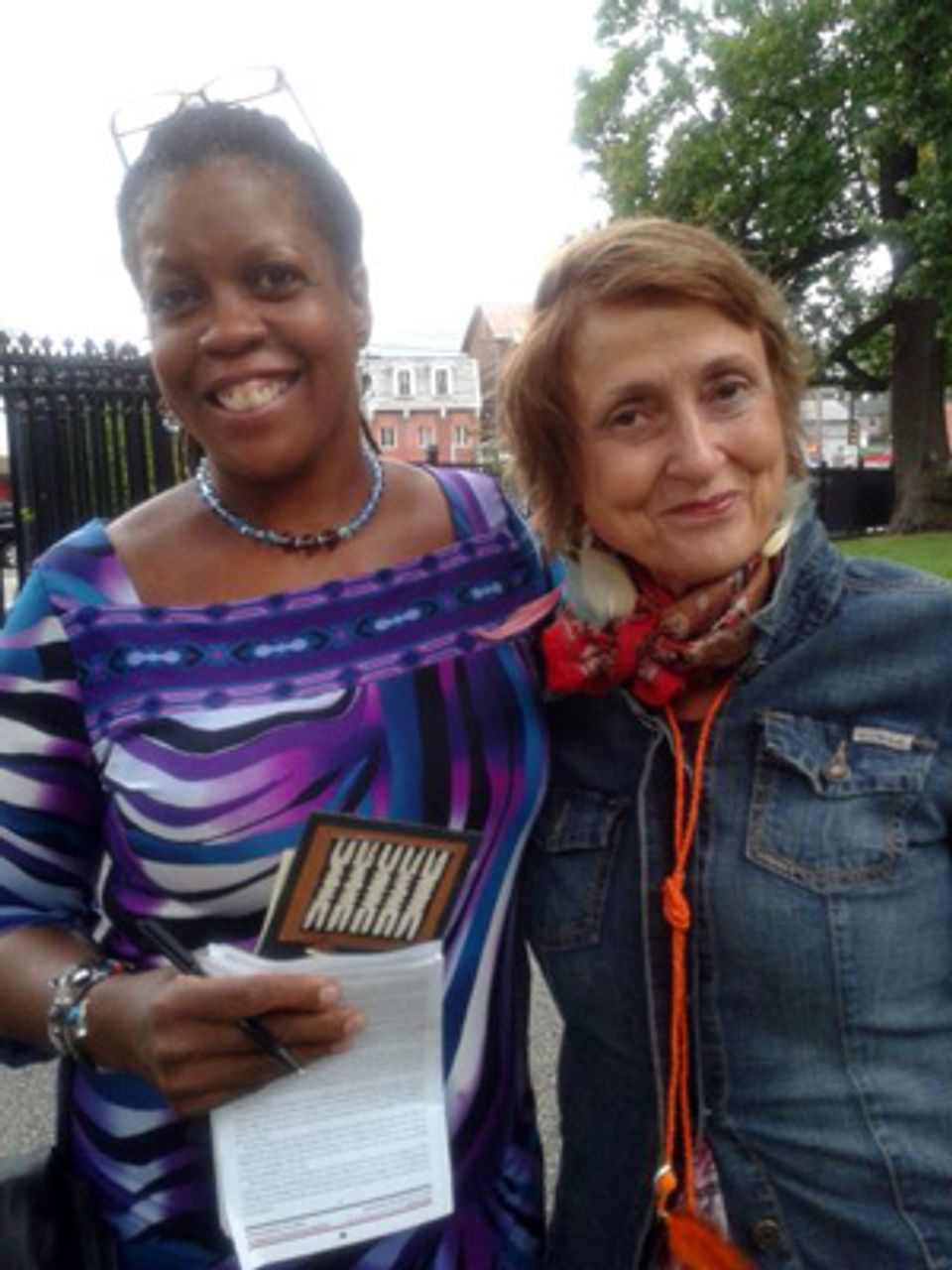Socialist Equality vice presidential candidate Phyllis Scherrer spoke to families at the Rock All Night Tour (RANT) music festival in the Lawrenceville neighborhood of Pittsburgh, Pennsylvania, this past weekend. Scherrer discussed the attack on the General Assistance Program in Pennsylvania, explaining that it was part of a bipartisan attack on the most vulnerable sections of the working class.
The recently passed Pennsylvania budget eliminated the $150 million General Assistance Program, which since the Great Depression has provided cash assistance to single people. This program of last resort for more than 70,000 Pennsylvanians who are unable to work provided access to critical medical care and a small cash grant of $205 a month.
General Assistance goes to individuals who have been found by their doctors to be disabled. It will be very difficult for these individuals to find jobs immediately, especially with 475,000 other Pennsylvanians currently out of work.
All of those who stopped to speak to Scherrer agreed that the state budget cuts were not simply the product of Republican Governor Tom Corbett. Many expressed their opposition to the entire political establishment. Scherrer discussed the program of the SEP and the need for a new political party of the working class.
 Scherrer with Bill and Michelle Hahner
Scherrer with Bill and Michelle HahnerOne nurse practitioner stopped to express his disgust with the cuts. “So many of my patients are choosing food or medicine right now. This is awful, to watch severely disabled and sick patients being cut off of a measly $200 a month. Also, society can expect to pay more to provide care for people who aren’t being caught in the safety net anymore. That includes homeless people forced into the streets, people with substance abuse problems who aren’t getting treatment, and people with mental illness who can’t access care on a reliable basis.
“Despite the fact that it would cost the state less to keep giving people their GA benefits, the state is trying to claim it will ‘save money,’ ” she added. “Now, the only way for these poor people to make any money is to give plasma. Yes it is a crime to cut GA.”
Bill Hahner was let go from his job and remained unemployed for nine months. “I was about to run out of everything. I eventually found something, but it is not easy. I had resumes out everywhere, and I would lay awake at night worrying about the next meal or rent payment. It’s rough. Now I work where there has been a pay freeze for the last five years, but the managers are driving Lexuses to work everyday. How does that work?!”
Michelle Hahner, his wife, interjected, “Try working 10 hours, four days a week and still not being able to pay the bills. I am making less now than I was on unemployment. This country is for the corporations, not for the people. They are reversing all of the reform policies of FDR from the 1940s. If wanting those things make me a socialist, then I’m a socialist. I think people don’t understand that all the money comes from us.”
 Sarah Koenig
Sarah KoenigSarah Koenig, a young worker said, “We don’t see ourselves as a community anymore if we cut those benefits like General Assistance for the poorest.”
Another Sarah saw these cuts coming from every direction. “My dad is 50 and has worked for PAT [Port Authority] since 2008. He relies on his job for health insurance. He’s a bus mechanic. The rich don’t care about the little people that let them live that lifestyle. I had no work for an entire month on my job as a waitress at a country club. It was slow, so they didn’t call me in. My bills didn’t stop, although I had no pay.”
Scherrer said: “This is yet another example of the lack of any social safety net for the working population and young people, who face the dangers of poverty every day, while the public treasury is looted to benefit the wealthiest .01 percent.”
 Mary Lou Hermann
Mary Lou HermannAll agreed with Aaron, Sarah’s boyfriend, explaining, “I cannot afford Internet, or cable, or a car, so I rely on public transportation. I had a friend who was injured on the job and had no benefits. He tried to get General Assistance benefits and was rejected. Because of things like that, I know a lot of people who need and may be eligible, but wouldn’t even try for fear of being rejected.”
Mary Lou Hermann, a retired single mother of four, described her own humiliating experience being on, and finally getting off, welfare. She expressed her disdain for those who place a stigma on recipients of welfare or General Assistance. “The media paints a picture so that people in other countries think all Americans are rich. They don’t realize that so many of us open refrigerators and cupboards that are empty. My kids are adults—they work and sometimes they don’t have food in the house.”
